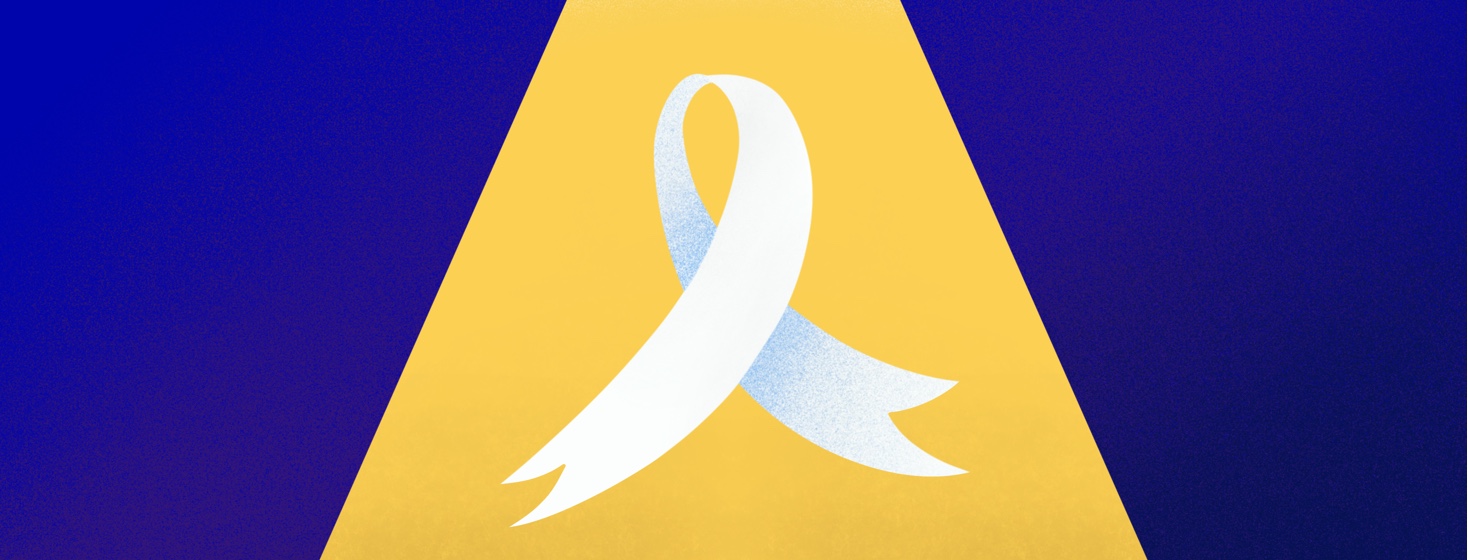The Who, When, How and History of LCAM
It is with great sadness that we inform you of the passing of Lisa Moran on June 6, 2023. As a cherished member of LungCancer.net and a source of inspiration, Lisa generously and bravely shared her journey, touching and inspiring many in our community. Her courage fuels our mission, and her legacy will endure in our work. Her absence will be deeply felt, and we extend our heartfelt condolences to all who held her dear. We consider it a privilege that Lisa allowed us into her life, leaving an indelible mark on our hearts and our community.
LCAM, pronounced /el-kam/, is the acronym for Lung Cancer Awareness Month. November is LCAM. I was excited about investigating this topic. After finding an online article about how LCAM was conceived, I contacted the International Association for the Study of Lung Cancer (IASLC) and the GO2 Foundation for confirmation and additional information.
The beginnings of LCAM
LCAM started in the United States on November 20, 1997 as Lung Cancer Awareness Day (LCAD). The organization behind the first LCAD was ALCASE, Alliance for Lung Cancer Advocacy, Support, and Education. The first day of awareness coincided with the American Lung Association’s Great American Smokeout. ALCASE worked to increase awareness of the symptoms of lung cancer.
Through the years ALCASE became Lung Cancer Alliance; known today as GO2 Foundation. In November 2000, three years after the initial LCAD, it grew into LCAM. I was curious about how the campaign was acknowledged and shared due to not many people used the internet in 2000. How did they spread awareness and share lung cancer information in times before social media? Maureen Rigney, GO2 Foundation Director, Support Initiatives, explained how the Lung Cancer Alliance would hold their own events, mail out lung cancer awareness kits, and launched the Shine A Light on Lung Cancer program. There are more than 200 Shine A Light events currently held around the country and support a broader message of lung cancer awareness.
Shine A Light events come in all venues and sizes. It can be an upscale event at a large hospital or cancer center to a simple grassroots get together with your friends, family, and local community.
Creating IASLC's LCAM Coalition
Kristin Ito, IASLC Patient Advocacy Manager filled me in on the more current details of LCAM. In early 2016, the IASLC proposed a common strategy for the benefit of lung cancer organizations around the world during LCAM and helped to create the LCAM Coalition (LCAMC). LCAMC is currently led by the IASLC. The coalition is made up of over 40 global partner organizations and has representation from the United States, Brazil, Israel, Ireland, Japan, Turkey, Italy, New Zealand, Nigeria, United Kingdom, and Poland.1
As a patient advocate, I have been a part of the LCAMC. The coalition works year-round to build and improve the November LCAM initiative. They focus on improving outcomes for lung cancer patients by educating physicians and patients on potentially lifesaving treatment options. It also works to generate more awareness among the public about the impact of lung cancer and how we can collectively battle against the disease, which is the most deadly cancer.
How to fight stigma and spread hope
I asked Kristin if there was anything we need to know about LCAM. She said that we need to work together to fight stigma and spread hope. No matter who you are, you can take action and contribute to LCAM by:
- Reading LCAM Stories of Hope
- Checking out the LCAMC partners. They all have fantastic information to provide education on lung cancer, patient advocacy and activities to get involved in.
This November, I plan to read the LCAM stories of hope and I will share my own lung cancer story of hope on my social media platforms.

Join the conversation